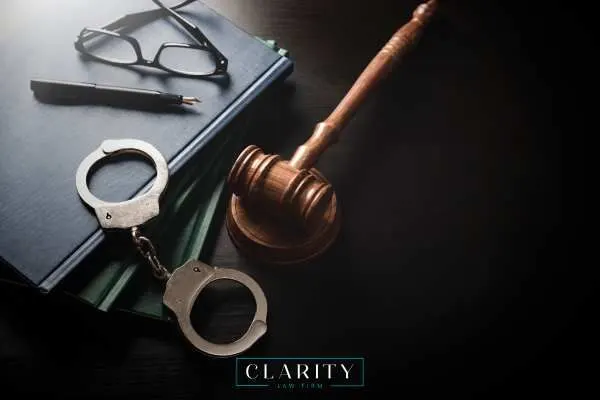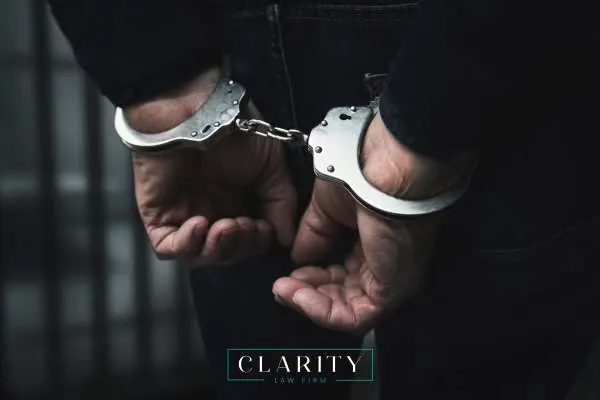Facing manslaughter charges in Dearborn can be a life-changing experience, with severe legal penalties at stake. Manslaughter cases, whether involuntary or voluntary, involve complex legal issues, and navigating this process alone can be overwhelming. A skilled Dearborn manslaughter lawyer from Clarity Law Firm can help you understand your legal rights, build a solid defense, and guide you through the legal system during this difficult time. When facing a criminal charge like manslaughter, having a dedicated legal advocate with a track record of success is crucial.
If you or a loved one is dealing with manslaughter charges, it's critical to act quickly. Seeking the help of experienced criminal defense attorneys from Clarity Law Firm can make all the difference in protecting your future and fighting for your constitutional rights. Call clarity Law today at (313) 513-1919 to discuss your case and learn how to move forward with confidence.
Types of Manslaughter Charges and Their Penalties
Manslaughter in Michigan is defined as the unlawful killing of another person without premeditation or malice aforethought, which distinguishes it from murder. Manslaughter charges can arise from various situations, and the law recognizes two primary categories: voluntary manslaughter and involuntary manslaughter.
Voluntary Manslaughter
Voluntary manslaughter occurs when a person intentionally kills another in the heat of passion or as a result of adequate provocation. This means that the individual acted impulsively in response to circumstances that would provoke a reasonable person. Key aspects of voluntary manslaughter include:
- Intent: The perpetrator intended to kill or cause serious harm to the victim.
- Heat of Passion: The killing was not premeditated. It was an immediate response to a triggering event, such as a confrontation or provocation.

Voluntary manslaughter occurs when a person kills someone intentionally but in the heat of passion or during a sudden quarrel, without premeditation.
- Prison Sentence: Conviction for voluntary manslaughter in Michigan carries a penalty of up to 15 years in prison.
- Fines: Fines for voluntary manslaughter can reach up to $7,500.
- Restitution: The court may order restitution to the victim’s family to cover funeral costs or other damages.
- Criminal Record: A conviction results in a permanent felony conviction, affecting employment opportunities, the right to vote, and the ability to possess firearms.
Involuntary Manslaughter
Involuntary manslaughter, on the other hand, does not involve intent to kill. It occurs when a person causes the death of another through reckless or negligent conduct. Key elements include:
- Unintentional Killing: The death is caused unintentionally, but the perpetrator's actions demonstrate a disregard for human life.
- Recklessness or Criminal Negligence: This could involve conduct that is significantly outside the bounds of reasonable behavior. For example, drunk driving or failing to adhere to safety protocols may result in involuntary manslaughter charges.
Involuntary manslaughter is when a person unintentionally causes someone’s death due to reckless or negligent actions. Examples include reckless driving or mishandling a firearm.
- Prison Sentence: Involuntary manslaughter is also punishable by up to 15 years in prison.
- Fines: Fines may be imposed up to $7,500.
- Restitution: Similar to voluntary manslaughter, the court can order restitution to the victim’s family.
- Criminal Record: This too results in a felony conviction, which can have long-lasting effects on a person’s rights and opportunities.
Factors That Affect Sentencing
The sentencing guidelines for manslaughter in Michigan are based on the Michigan Penal Code and influenced by factors such as:
- Severity of the crime: Voluntary manslaughter typically results in more severe penalties due to the intent to harm, compared to involuntary manslaughter.
- Criminal history: A person with prior convictions or a poor disciplinary record may face harsher sentencing. Repeat offenders are often subject to longer prison terms and higher fines.
- Aggravating factors: Elements such as the use of a weapon, the age of the victim, or multiple victims can lead to enhanced penalties.
- Mitigating factors: If the defendant acted in self-defense or under extreme emotional disturbance, these factors may reduce the sentence.
- Probation Violations: Violating probation terms can lead to increased penalties and additional criminal penalties.
Why You Need a Lawyer for a Manslaughter Case
Manslaughter charges are serious and can have devastating consequences, including lengthy time in jail and a permanent criminal record. Legal representation is essential for several reasons, as it significantly impacts the outcome of a case. The complexities of the law surrounding criminal offenses like manslaughter require knowledgeable guidance from criminal defense lawyers.
Manslaughter laws can be intricate and vary by state. Understanding the legal definitions, including the distinctions between voluntary and involuntary manslaughter, is vital. The nuances of each case, such as intent, circumstances of the incident, and mitigating factors, play a crucial role in determining the outcome. An experienced lawyer with knowledge of legal practice can navigate these complexities and interpret how they apply to a specific case.
The consequences of a manslaughter conviction can be severe. Depending on whether the charge is classified as voluntary or involuntary, penalties may range from probation to several years in prison. Seeking the help of criminal defense lawyers with a high-quality defense approach can make a significant difference.
What Your Lawyer Will Do for Your Case
Having an experienced defense lawyer in Dearborn can significantly influence the outcome of a manslaughter case. Here’s how:
- Building a Strong Defense: A knowledgeable attorney will thoroughly investigate the circumstances surrounding the case. They will gather evidence, interview witnesses, and consult experts to build a compelling defense strategy tailored to the specifics of the case.
- Negotiating Plea Deals: Many manslaughter cases are resolved through plea negotiations. An attorney experienced in dealing with prosecutors can negotiate for favorable plea agreements or lighter sentences, potentially sparing the defendant from a lengthy trial and severe penalties. A plea bargain can be crucial in avoiding maximum penalties.
- Representing in Court: If the case goes to trial, having an attorney who is skilled in courtroom procedures and persuasive in presenting arguments is critical. They can cross-examine witnesses effectively and challenge the prosecution's evidence, helping to create reasonable doubt.
- Providing Legal Advice: Throughout the process, an attorney offers invaluable legal services and advice, helping defendants understand their rights and options. This guidance is crucial for making informed decisions at every stage of the case.
What to Expect if You Are Charged With Manslaughter
Facing a manslaughter charge in Michigan is a serious matter that involves several legal processes. Understanding what to expect can help individuals navigate the situation more effectively.

Initial Arrest and Charges
The process begins with an arrest, which may occur after an incident resulting in a death. Law enforcement will investigate the circumstances, gather evidence, and ultimately decide whether to file charges. The charge can range from involuntary to voluntary manslaughter, depending on the circumstances of the case.
Pre-Trial Procedures
Once charges are filed, the pre-trial phase begins. This phase includes several important steps:
- Arraignment: The defendant appears before the District Court to hear the charges read. During this appearance, the defendant will enter a plea of guilty, not guilty, or no contest. The judge will also discuss bail conditions at this time.
- Discovery: Both the defense and prosecution exchange evidence and information relevant to the case. This includes witness statements, police reports, and expert testimonies.
- Pre-Trial Motions: Defense attorneys may file motions to suppress evidence or request other rulings that can affect the case. The judge will review these motions and make decisions accordingly.
Court Appearances
Throughout the pre-trial phase, there may be several court appearances:
- Status Conferences: These are scheduled to update the court on the progress of the case and determine if it is ready for trial.
- Plea Negotiations: Often, the defense and prosecution will engage in plea negotiations. The defense may seek a plea deal to reduce charges or recommend a lighter sentence in exchange for a guilty plea. If an agreement is reached, the defendant will enter a guilty plea, and the case may proceed to sentencing.
Get the Legal Help You Need
Manslaughter charges are serious and can have lasting effects on your life, but you don't have to face them alone. Having a dedicated federal criminal defense attorney from Clarity Law on your side can be the key to building a solid defense and ensuring your legal rights are protected throughout the legal process. With a track record in defending cases involving violent crimes, federal crimes, sex crimes, and white collar crimes, our team is here to provide the legal services and support you need.
If you're facing manslaughter charges in Wayne County, don’t wait to get the legal help you need. Contact our firm today to schedule an initial consultation, discuss your case, explore your options, and take the first steps toward protecting your future.
